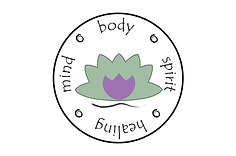How To Deal With Your Emotions Away From Food
- Apr 25, 2021
- 2 min read

It’s no secret that a lot of people engage in emotional eating. Whether you are anxious and stressed or depressed and upset at any point in your life, food can always “be there” for you as a coping mechanism. However, utilizing food as a means of a coping mechanism isn’t the answer, and can actually do a lot more harm than good.
If you’re already in the middle of realizing you have an emotional eating or even a binge eating problem (or both), the good news is, it’s okay. An estimated 2.8 billion people suffer from binge-eating disorder in the United States and a study shows that about 57% of (overweight) adults self-report frequent emotional eating.
It’s a very real issue, but it can be helped and improved.
1. Figure out why you’re emotionally eating
There is always a reason behind emotional eating - maybe you had a horrible day at work, times are tough financially, or you got into a fight with a loved one. It could be anything, even if you don’t realize it. It’s best to analyze the situation when you feel like eating, and identify if you’re actually hungry or just trying to use it as a way of coping.
It’s also important to note how you feel when you’re craving food. Are you stressed or anxious? Maybe you’ve been dealing with a bit of a depressive episode. If you’re feeling any of these negative ways, then it might be a good idea to avoid food so you don’t emotionally eat and binge out. You really do have to analyze the situation throughout in order to truly find out the cause of your emotional eating.
2. Journal your binge-eating episodes
A lot of people who struggle with binge-eating report feeling shameful or guilty after having a binge-eating episode and would rather forget it. However, in this case, it is important to keep track of your binges and everything you're feeling through it. This means writing down how you feel before you binge, during your binge, and after your binge.
You may also want to keep track of the food you’re eating as well. Many people often report eating very unhealthy foods during binges that would otherwise be “forbidden” or something they wouldn’t normally eat, such as pizza, ice cream, chips and dips, etc. in large quantities.
3. Now let’s combat the emotional need to eat
At this point, you’ve identified why you’re emotionally eating or binge-eating, what your trigger feelings and foods are, and now it’s time to combat it. Now, this takes effort, is easier said than done, and you might even slip up a few times, but as long as you try, that’s all that matters. You’ll want to see if it’s true hunger or emotional hunger next time an episode begins to manifest and truly fight the urge to give in.
An additional way to help in combating emotional eating is to remove any “trigger foods” from your home - that means any food you’ll reach for when you emotionally eat or binge-eat. Instead of isolating yourself in times of anxiety or stress, it’s best to busy yourself with something or someone and truly fight the urge. Overtime, it will become easier and easier to say “no” to emotional eating.
~Shelly Werts




.jpg)



Comments